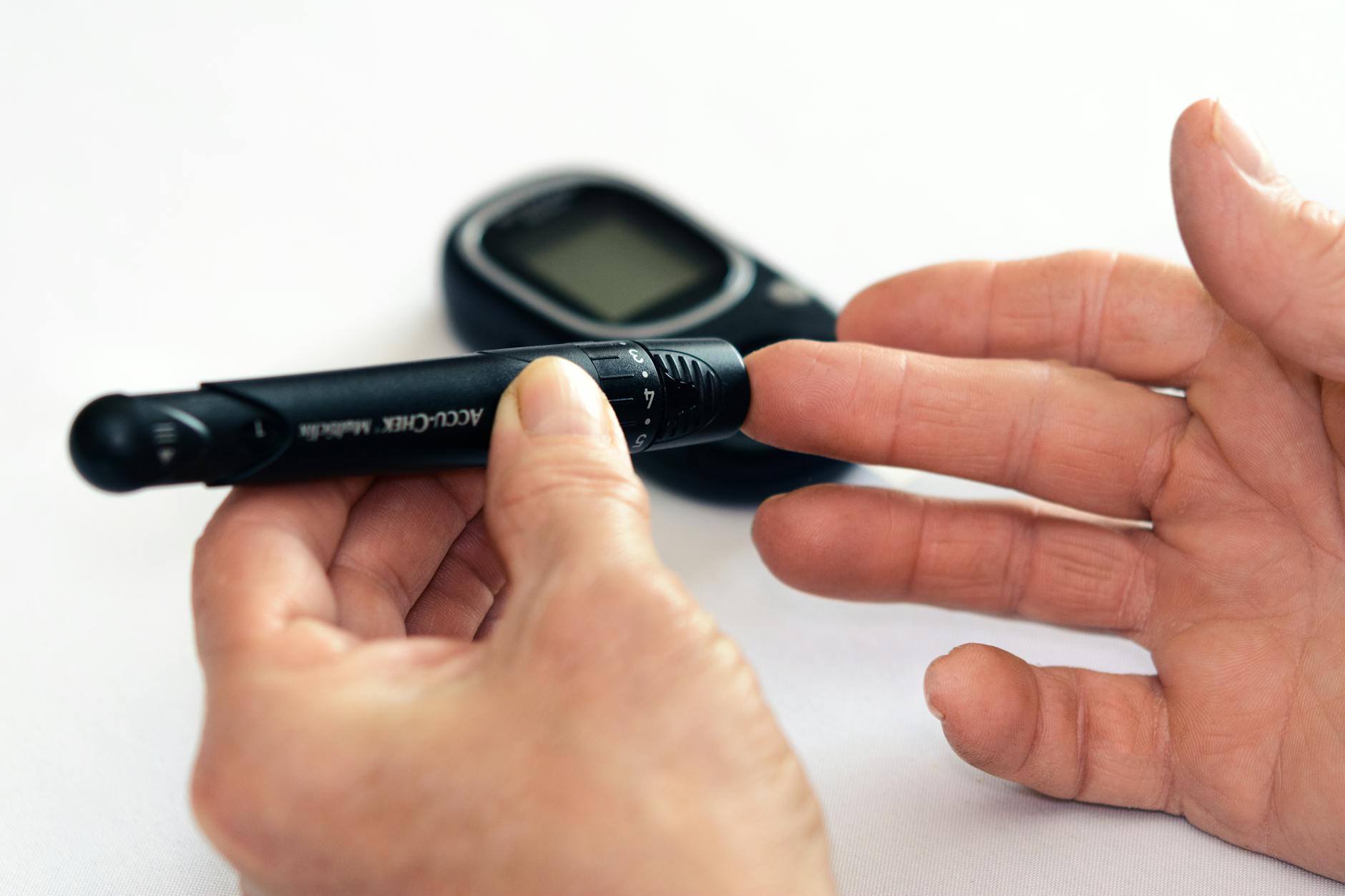
Snack options can be tricky for diabetics, especially with so many products claiming to be “healthy.” Quest Chips, known for their high protein and low carb content, are often flagged as a potential go-to snack for diabetics. But are they really a good choice? The short answer: Quest Chips can be suitable for most diabetics due to their minimal impact on blood sugar levels. However, understanding portions, ingredients, and how they fit into your overall diet is key. Let’s break it all down in this guide!
Understanding Diabetes and Nutrition
When managing diabetes, understanding how nutrition affects your blood sugar is crucial. Food choices play a pivotal role, and knowing the basics makes all the difference in leading a healthy life with diabetes. Let’s break it down further.

Photo by Nataliya Vaitkevich
What is Diabetes?
Diabetes is a chronic health condition where your body struggles to regulate blood sugar levels effectively. This happens because of insulin, a hormone made by the pancreas. Insulin allows sugar to enter your cells to be converted into energy. Without sufficient insulin or if your body isn’t using it properly, sugar builds up in the blood, leading to diabetes.
There are two main types:
- Type 1 Diabetes: This is an autoimmune condition. The body attacks insulin-producing cells in the pancreas, leading to little or no insulin production. People with Type 1 diabetes need insulin therapy to manage their condition.
- Type 2 Diabetes: This is the more common form, often linked to lifestyle factors like poor diet and lack of physical activity. Here, the body either doesn’t produce enough insulin or becomes resistant to it.
Both types require consistent management, but they have notably different origins and treatments. Learn more about diabetes and nutrition from the American Diabetes Association.
The Role of Carbohydrates in Diabetic Diets
Carbohydrates play a significant role in a diabetic’s diet as they are the main factor influencing blood sugar levels. When you consume carbs, your body breaks them down into glucose. This glucose enters your bloodstream, causing your blood sugar to rise. It’s not just candy or soda—bread, pasta, fruit, and even some vegetables contain carbs too.
However, not all carbs are equal. Complex carbs release glucose slowly, which minimizes spikes, while simple carbs cause rapid blood sugar surges. For people with diabetes, the key is moderation and strategic balance.
Here are some tips for choosing carbs:
- Focus on whole grains: Opt for oats, brown rice, and whole-grain bread.
- Limit refined sugars: Reduce sweets, sodas, and processed snacks.
- Watch portion sizes: Even healthy carbs can lead to spikes if consumed in large amounts.
Interested in the science behind it? The CDC Guide to Carb Counting outlines how to manage your carb intake effectively.
Understanding carbs isn’t just about avoidance—it’s about learning how to integrate them into your diet while keeping your blood sugar stable. Dive deeper into carbohydrates and diabetes education for more details.
Nutritional Profile of Quest Chips
When assessing the suitability of a snack like Quest Chips for diabetics, it’s essential to consider both the macronutrient content and the glycemic impact. Let’s take a closer look at what these chips bring to the table.
Calories and Macronutrients
Quest Chips are marketed as a better-for-you snack, offering a balance of macronutrients that stand out in comparison to traditional chips. Each serving (typically one bag) provides:
- Calories: Around 140 calories.
- Protein: 18-19 grams, primarily from a blend of milk protein isolate and whey protein isolate.
- Fats: Roughly 4.5-5 grams of fat, depending on the flavor. The fats are derived from oils like sunflower or canola.
- Carbohydrates: Total carbs come in at approximately 5 grams, but with 1 gram of fiber, the net carbs are just 4 grams per bag.
This macronutrient profile highlights a key advantage for diabetics: the high protein and low carb content may help to maintain stable blood sugar levels. Unlike regular potato chips, which tend to be high in carbs and fat with almost no protein, Quest Chips are designed to offer a more balanced nutritional option, particularly for those aiming to manage their carbohydrate intake. Find detailed nutritional information on Quest Chips here.
Glycemic Index and Its Importance
The glycemic index (GI) measures how much a food raises blood sugar levels after being consumed. Foods with a lower GI (below 55) cause smaller, slower increases in blood sugar, whereas high-GI foods (70 or higher) lead to rapid spikes. For diabetics, focusing on low-GI foods is a critical part of dietary management.
Quest Chips, thanks to their low carb content, likely have a low GI—though their exact GI rating isn’t published. The minimal carbohydrate load, offset by substantial protein, reduces the likelihood of significant blood sugar spikes. This can make them a preferable snacking option over standard chips, which are typically high on the glycemic index. To better understand the role of GI in diabetes management, explore the Mayo Clinic’s guide to glycemic index and diabetes.
For diabetics, consuming low-GI snacks can help minimize insulin demand and keep glucose levels more consistent throughout the day. It’s another reason why Quest Chips often outperform traditional options when it comes to managing blood sugar.

Photo by Tim Samuel
Careful portions and mindful pairing with other low-GI or protein-rich foods can further enhance their role in a diabetic-friendly diet. For more resources on managing blood sugar with low-GI foods, check out this WebMD guide to using the glycemic index.
Are Quest Chips Suitable for Diabetics?
For diabetics, finding snacks that are both satisfying and blood sugar-friendly can be challenging. Quest Chips, with their high protein and low carb composition, have become a popular choice. But are they really suitable for those managing diabetes? Let’s explore expert insights and real-world experiences to answer this question.
Expert Opinions and Studies
Nutrition experts often recommend low-carb, high-protein snacks for blood sugar control, and Quest Chips appear to fit this profile well. Their macronutrient composition, featuring just 4 grams of net carbs per serving, aligns with dietary strategies for people managing diabetes. The protein and fiber content also contribute to slower glucose absorption.
A study published in the Journal of Diabetes Research and Clinical Practice emphasizes the importance of snacks with a low glycemic load for maintaining stable blood glucose. While Quest Chips’ exact glycemic index (GI) isn’t established, their high-protein formula likely results in a low GI, reducing the risk of spikes. This makes them a viable alternative to traditional chips for most diabetics. You can read more about diabetes-related nutritional therapy in this scientific consensus report.
Moreover, dietitians underscore the importance of snack choices that fulfill cravings without derailing glycemic control. For example, an article on EatingWell highlights Quest Chips among options for individuals looking to maintain a balanced snack plan.
Real User Experiences
Hearing from those who manage diabetes daily provides valuable practical insights. Many diabetics praise Quest Chips for their favorable impact on blood sugar levels.
- One Reddit user from the r/prediabetes community shared their experience of stable glucose levels after eating Quest Chips, attributing it to their fiber and protein content. Check out similar discussions here.
- Another testimonial from Amazon reviews highlighted their ability to enjoy a crunchy, salty snack without compromising their dietary goals.
- Meanwhile, a TikTok video featured a glucose test review after eating Quest Chips, which confirmed their minimal impact on the creator’s blood sugar. Learn more about it here.
However, there have been occasional mentions of individual variability. Some users on forums like GestationalDiabetes Reddit noted differing responses based on portion sizes and time of day, reinforcing the need for personalized monitoring.
While Quest Chips might not work for everyone, the combination of expert-backed nutritional composition and positive real-world feedback makes them a worthy consideration for diabetics searching for a convenient, enjoyable snack.

Photo by AS Photography
By balancing taste and nutritional needs, these chips strike the right chord for many. Could they be your next go-to snack?
Comparing Quest Chips with Other Snack Options
When choosing snacks as a diabetic, it’s about finding foods that won’t spike blood sugar. Quest Chips position themselves as a healthy alternative, but how do they really stack up against traditional and alternative snacks?
Traditional Snack Foods and Their Impact
Traditional snack options like potato chips, pretzels, and crackers are often packed with refined carbs and sugars. These snacks might satisfy a craving, but for diabetics, they can wreak havoc on blood sugar levels. High-carb snacks are metabolized quickly, causing rapid glucose spikes that demand insulin regulation.
Here’s how common snacks could affect blood sugar:
- Potato Chips: High in simple carbs and unhealthy fats. These can cause a fast and significant blood sugar rise.
- Pretzels: Though low in fat, the refined flour content spikes sugar quickly.
- Cookies and Cakes: Packed with added sugars and refined carbs, leading to prolonged glucose elevation.
Evidence shows these traditional snacks often have a high glycemic index (GI), which is less than ideal for managing diabetes. A study from PMC highlights how the timing and carb-heavy nature of these snacks amplify post-meal glucose levels.

Photo by Александр Полепкин
For diabetics, the message is clear: traditional snacks may offer taste, but they come at the cost of stable blood sugar.
Alternative Low-Carb Snacks
Thankfully, not all snacks are off the table for diabetics. Low-carb snack options provide satisfying choices that keep blood sugar in check. Quest Chips fall into this category, thanks to their low-carb content, but there are many other options worth exploring.
Consider the following alternatives:
- Nuts and Seeds: Almonds, walnuts, and pumpkin seeds are protein-packed and low in carbs, making them a blood sugar-friendly choice.
- Cheese Crisps: Low-carb snacks like Whisps Parmesan Cheese Crisps deliver crunch and flavor without the carb overload.
- Hard-Boiled Eggs: A protein-rich snack that ensures steady blood sugar levels without causing spikes.
- Vegetables with Hummus: Carrot sticks and cucumber slices with hummus are nutrient-dense and low on the glycemic scale.
- Low-Carb Bars: Products like KIND Zero Bars or other keto-friendly bars can satisfy a sweet tooth while maintaining balance.
If you’re interested in more diabetic-friendly snacks, check out these low-carb snack ideas from EatingWell. They provide a broad range of convenient and tasty options.
When deciding on a snack, it’s crucial to pick one that aligns with your health goals. Low-carb and high-protein options, like Quest Chips, can fit into a well-rounded diabetic-friendly snack plan. Explore more snack ideas on Healthline.
How to Incorporate Quest Chips into Your Diet
Integrating Quest Chips into your daily routine can be a flavorful yet strategic choice for managing blood sugar. They’re high in protein, low in carbs, and make a convenient snack for diabetics. However, balance is key to making this food work as part of your overall dietary plan.
Serving Sizes and Portion Control: Emphasize the importance of serving sizes for blood sugar management
Portion control is paramount, especially when managing diabetes. While Quest Chips are considered a blood sugar-friendly snack due to their low carb content, eating the entire bag without regard to serving size can still lead to overindulgence.
- Stick to the standard serving size: A single serving of Quest Chips contains about 4 grams of net carbs. This makes it less likely to spike blood sugar when paired with other low-carb foods.
- Monitor your glucose: Individual responses to foods can vary. For example, someone may handle an entire bag well, while others might notice slight fluctuations if eaten alongside high-carb meals.
- Track your snacks: Keep a log of when and how much you consume to understand its effects on your blood sugar.
Managing portions doesn’t mean you’ll feel unsatisfied. Pairing Quest Chips with nutrient-dense foods will help create a balanced and filling experience.
Pairing with Other Foods: Suggest foods to combine with Quest chips for a balanced diet
Quest Chips, on their own, are a great low-carb option, but pairing them with complementary foods can enhance both flavor and nutrition without compromising blood sugar management.
Here are some healthier ways to enjoy Quest Chips:
- With Protein-Rich Dips: Pair Quest Chips with guacamole, hummus, or Greek yogurt-based dips. These dips add healthy fats and proteins that slow down glucose absorption.
- As a Side Dish: Combine them with a high-quality protein such as grilled chicken or turkey for a diabetes-friendly lunch.
- Veggie Toppers: Add your chips to salads for that extra crunch—think grilled chicken salad topped with crumbled Quest Chips.
- Pair with Low-Glycemic Snacks: Foods like cucumber slices, cheese, or nuts complement the chips while keeping your carbs low and energy levels stable.
Making Quest Chips part of meals or pairing them with carefully chosen sides ensures you stay satisfied without overshooting your daily carb limit.
Check out this EatingWell guide to the best chip brands for diabetes for more ideas on how to incorporate snacks into your meal plan thoughtfully.

Photo by Yaroslav Shuraev
Whether you use them as a quick snack or a thoughtful addition to meals, Quest Chips can work seamlessly in a diabetic-friendly diet with mindful pairing and portion control.
Conclusion
Quest Chips can be a good snack option for diabetics, thanks to their low net carbs and high protein. They are less likely to cause blood sugar spikes when consumed as part of a balanced meal or snack plan. Pairing them with nutrient-rich foods like hummus or vegetables helps enhance their nutritional value while providing variety.
As with any snack, portion control and monitoring your blood sugar response are key to ensuring they fit your needs. For many, they serve as a satisfying and healthier alternative to traditional chips. Always consult with a healthcare provider for personalized dietary advice tailored to your diabetes management.
Are Quest Chips part of your diet plan? Let us know your thoughts or tips in the comments!





